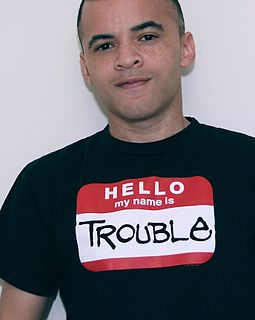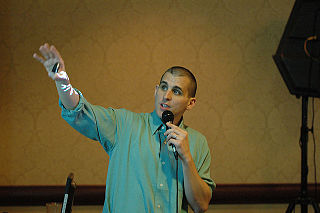A Quote by Margaret Atwood
Writing of the narrative kind, and perhaps all writing, is motivated deep down, by a fear or and fascination with mortality - by a desire to make the risky trip to the underworld and to bring something or someone back from the dead.
Related Quotes
For example, when I was writing Leviathan, which was written both in New York and in Vermont - I think there were two summers in Vermont, in that house I wrote about in Winter Journal, that broken-down house... I was working in an out-building, a kind of shack, a tumble-down, broken-down mess of a place, and I had a green table. I just thought, "Well, is there a way to bring my life into the fiction I'm writing, will it make a difference?" And the fact is, it doesn't make any difference. It was a kind of experiment which couldn't fail.
One has to be cautious and respectful of the power of the "substance" guides. I don't advocate imbibing the "little saint children," as Maria Sabina calls the magic mushrooms, or anything else for everyone. I find that certain substances reconnect me to a primal context of purpose that goes beyond identity and ownership. The writing-when I've worked it this way-is the kind of information you take back from dreams. Or it's hypnotic writing rather than getting off on some sort of pleasure trip or intellectual trip.
I guess the wildcard here is Terrence Malick. He supervised me while I was writing the script for Beautiful Country, and he is a genius, although not always easy to follow. What I learned from him is that the narrative can be tracked through all kinds of scenes, that the strong narrative thread is not always the one that is most obvious. Creating narrative with Malick was a bit like chasing a butterfly through a jungle. This approach to narrative is fun and complicated, something that makes the process of writing constantly interesting to this writer.
If you have to find devices to coax yourself to stay focused on writing, perhaps you should not be writing what you're writing. And if this lack of motivation is a constant problem, perhaps writing is not your forte. I mean, what is the problem? If writing bores you, that is pretty fatal. If that is not the case, but you find that it is hard going and it just doesn't flow, well, what did you expect? It is work; art is work.
Yet the story of Orpheus, it occurs to me, is not just about the desire of the living to resuscitate the dead but about the ways in which the dead drag us along into their shadowy realm because we cannot let them go. So we follow them into the Underworld, descending, descending, until one day we turn and make our way back.
The writing has been on the wall for some years now, but we are a nation illiterate in the language of the wall. The writing just gets bigger. Something will eventually bring down the charming, infuriating naïveté of Americans that allows us our blithe consumption and cheerful ignorance of the secret ugliness that bring us whatever we want.






































